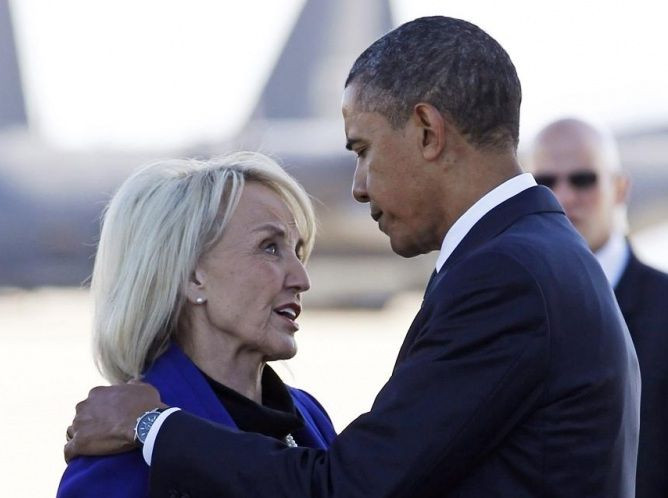Supreme Court Set for Immigration Showdown

The U.S. Supreme Court will review key parts of Arizona Governor Jan Brewer’s tough immigration law passed in April last year. The case will likely be heard in April of 2012, with a ruling handed down by July.
The controversial immigration law, SB 1070, requires police to check the immigration status of anyone they detain and suspect of being in the U.S. illegally regardless of the crime and grants police the authority to arrest people without warrants if they have probable cause to believe that suspects are deportable under federal law.
The Obama administration challenged the law, arguing the federal government has exclusive control over immigration enforcement. In April 2011, a three-judge panel of the 9th U.S. Circuit Court of Appeals refused to reverse a lower court's order that prevented key parts of the law from being enforced, stating that federal officials are likely to prove the law is unconstitutional and succeed in their argument that Congress has given the federal government sole authority to enforce immigration laws.
Supporters say states need to take aggressive action because the federal government has failed to do enough to stop the flow of illegal immigrants into the country. Brewer's lawyers argued the federal government hasn't effectively enforced immigration law at the border and in Arizona's interior, and that the state's intent in passing the law was to assist federal authorities, something Congress has encouraged.
Similar measures have been introduced in other states, including Alabama, Georgia, South Carolina, Indiana and Utah. Last month Ichiro Yada, one of about 100 Japanese managers of Honda Motor Company on assignment in Alabama, was arrested under new immigration laws and charges were later dismissed. A month earlier police arrested a German director of Mercedes-Benz, also under the new laws.
Some legal experts doubted the Supreme Court would take up the case. University of Arizona law professor Gabriel Chin told NPR that justices likely would refuse to grant Arizona's request to review the trial judge's injunction unless the federal government urged it to do so.
Justice Elena Kagan recused herself from the case because she was solicitor general when the Obama administration formulated its legal challenge.
Published by Medicaldaily.com



























